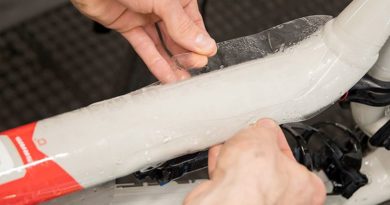LEVA introduces Reviews program to offer consumer factual e-bike buying advice
The Light Electric Vehicle Association has furthered its efforts to provide benchmarked and accurate data to the electric bike buying consumer with the introduction of a Reviews scheme.
Open to the Association’s 330 members, the new program is an addition to the SGS third party lab partnership launched a few years ago. At the time this was proposed as the answer to producing repeatable, consistent, and accurate data on e-bike performance. While this partnership continues to be supported, LEVA has found that uptake by businesses has thus far been lacking, in part down to the time and cost.
LEVA’s new Reviews scheme comes in response to member demand to equalise the field and bring an end to unsubstantiated claims with an impartial and objective test. With the market predicted to grow in value by $10 billion in the next nine years, proper scrutiny of manufacturer claims and unbiased consumer advice is overdue.
Bikes will be tested on a known course in Fort Myers, Florida, by one of a handful of test riders, with a data logger installed. The test riders will collect objective data via the data logger, and create subjective evaluations based on their experience and opinions. This information will be written up by LEVA Chairman Edward Benjamin.
Benjamin told CyclingIndustry.News: “Errors may occur, the process is not secret, we will listen to criticism. It could be more accurate (the more accurate SGS testing is still available), and we be frank about possible conflicts of interest. LEVA test results are not for sale, are insulated from influence by members, sponsors, and relationships as much as is humanly possible. Mistakes may be made, and when LEVA is aware of such, they will be admitted to and corrected. I will personally work toward this.”
The reviews will be published in the LEVA Newsletter, on the LEVA website and will be offered to cycling publications (with credit) as an impartial guide to performance.
Starting this Autumn, the program will carry a “small fee” and one bike and two batteries will be required in order to complete the analysis. These will not be returned, says the organisation, which will either sell or dispose of the bikes after testing.
Ed Benjamin is a regular contributing expert here at CyclingIndustry.News. Read his columns on everything from monetising the e-bike to safely storing batteries here.



